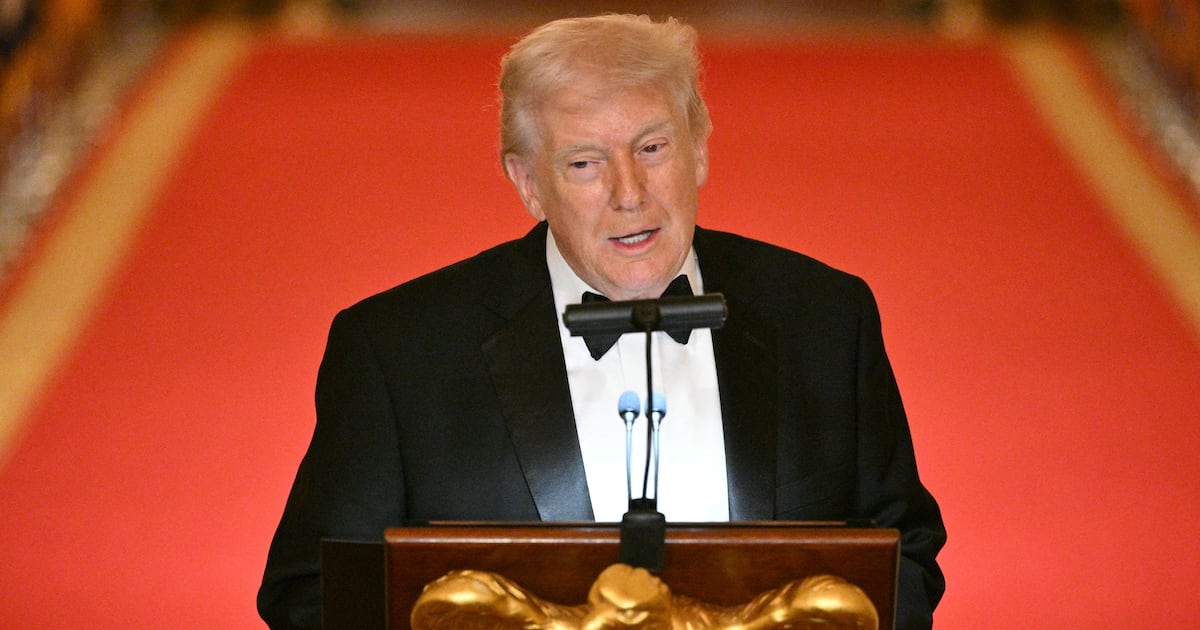President Donald Trump has long used vague, unsubstantiated and false claims about mass voter fraud to target his enemies and go on the attack.
And as he prepared for an appearance in Michigan Thursday, raising the specter of voter fraud once more, no matter how incorrect he was, was too good a chance for Trump to pass up even if it meant threatening federal funding in the process for a state that’s crucial to his 2020 re-election chances.
He was so intent on getting that message out there that he took to Twitter Wednesday morning where he charged that the state had sent absentee ballots to more than 7 million people in what he described as an illegal move.
“I will ask to hold up funding to Michigan if they want to go down this Voter Fraud path!” Trump tweeted.
And the president’s Michigan tweet had errors, including in the center of his argument. Michigan Secretary of State Jocelyn Benson had made it known in a statement Tuesday that the state’s registered voters would be sent an application to vote by mail, not yet a ballot.
The threat has the potential of backfiring on Trump in a state he narrowly won in 2016, when he defeated Hillary Clinton by less than half a percent, and goes against what other GOP officials in other key states are practicing during the pandemic.
Just hours after the president’s first tweet about Michigan, Georgia’s Republican secretary of state sent out a statement calling on voters in the state to cast ballots by mail for the state’s June 9 contest. The GOP official’s office had made clear earlier in the pandemic that forms for absentee ballot requests were headed to the state’s nearly 7 million voters.
Other Republicans have also taken a similar approach.
Once Ohio’s Republican governor succeeded in pushing back the state’s planned March 17 primary, mail in voting led by the state’s GOP secretary of state allowed the contest to eventually come to a close. In Wisconsin, even as Republican officials thwarted the Democratic governor’s efforts to delay an April primary, the GOP leaders of the House and Senate made clear in a statement that they “advocated for everyone to vote absentee.”
Making matters even more difficult for the president is his own use of the practice, with him admitting he voted absentee in Florida’s March primary.
That hasn’t stopped Trump from disparaging the practice, even as Democrats have made clear how important expanded voting options will be as the country faces an uncertain path heading into November’s general election.
After Trump’s outburst, Benson also tweeted that the move was done “just like my GOP colleagues in Iowa, Georgia, Nebraska and West Virginia,” as the state maintained it had the authority to do the same.
Hours after sending his tweet, Trump posted a nearly identical version referring to applications being sent instead of ballots, but maintained the funding threat.
“The president's clearly afraid that if people actually turn out and vote he'll lose,” said Jeff Timmer, a Trump critic and former executive director of the Michigan Republican Party who plans to support former Vice President Joe Biden in November. “And his path to 270 is narrow and has no room for error and he continues to blunder after blunder in Michigan. It's astounding.”
Michigan has become a frequent target for Trump as he tries to win re-election, with the president lashing out at the state’s Democratic governor, Gretchen Whitmer, and even going as far as appearing to encourage protests of the state’s coronavirus restrictions.
The reality of going after mail-in voting, or absentee ballots, is a challenging one for the president given how officials across the country have embraced the practice, especially during the coronavirus pandemic. Though experts say a very small level of fraud can occur with mail-in ballots, it’s nowhere near the level that Trump is claiming. And the president has provided no accurate evidence to back his outsized claims.
In interviews ahead of the president’s visit, Michigan Republicans defended Trump’s tweet despite the funding threat to their state.
“Well, I guess he can do whatever he wants,” said Steve Yoder, the first district chair for the Michigan Republican Party. “I understand his concern with it increasing voter fraud like that.”
A similar sentiment came from Hank Choate, the state GOP’s chairman in the 7th District, who expressed discomfort with the secretary of state’s move.
“If a state official, whether it's a Republican, whether it's a Democrat or whatever, if they're acting outside of their constitutional authority I have nothing against holding funding until they correct it or rescind it,” he said.
The campaign of Michigan GOP senate challenger John James did not respond to a request for comment Wednesday about the president’s tweet.
Trump’s voter fraud obsession is nothing new. After winning the 2016 general election, Trump baselessly declared that millions of illegal votes cost him the popular vote victory over Hillary Clinton.
A voter fraud commission shepherded by the Trump administration in 2017 quickly turned into a fiasco with little to show for in the way of results. In the midst of the coronavirus pandemic the president, once again returned to a voter fraud conspiracy as he disparaged voting by mail as causing widespread fraud when talking about Wisconsin’s primary.
With his tweet Wednesday, Trump was once again able to tie together two of his favorite virus era targets: Democrats and voter fraud.
But that kind of emphasis can come at a cost in a state that’s critical to Trump winning a second White House term.
“I felt a thousand Republican officeholders across the state cry out in silent grief," Joe DiSano, a Democratic consultant based in Michigan said of Trump’s tweet. "Biden's on the verge of putting Michigan away, putting it out of reach and you've got Donald Trump threatening the state of Michigan like we're Ukraine.”







